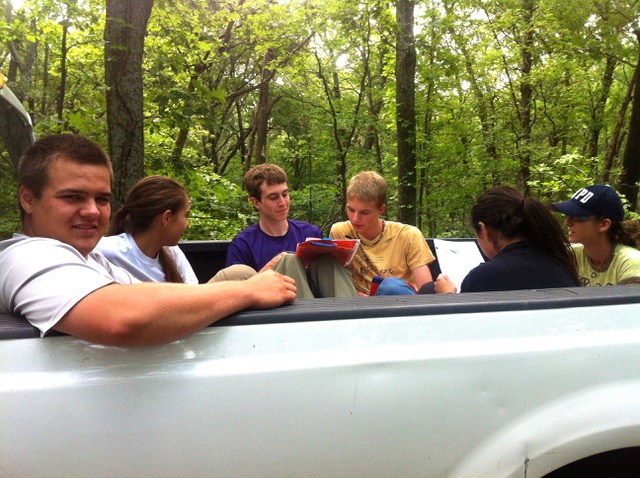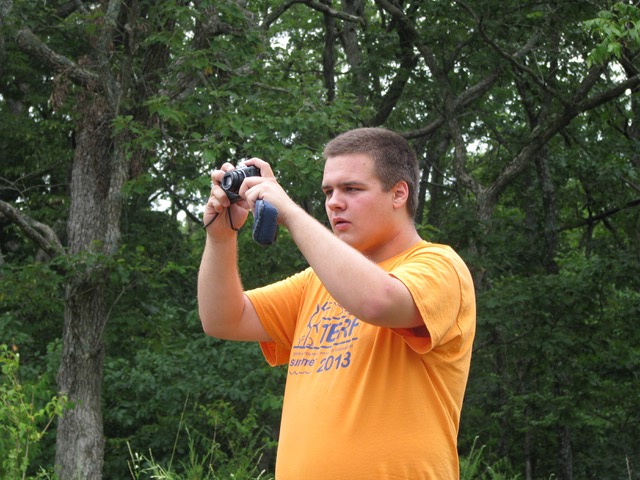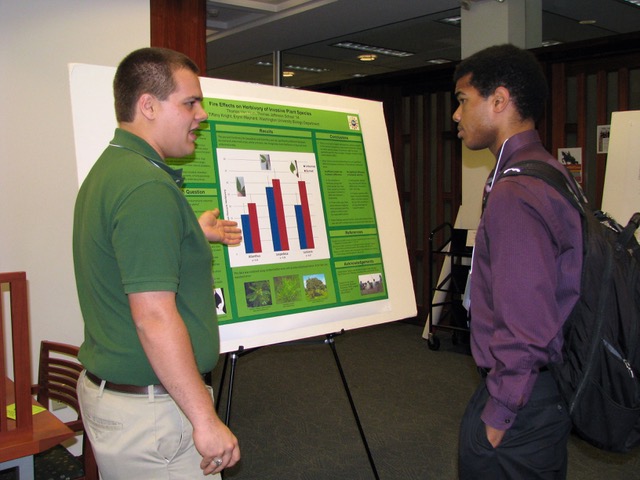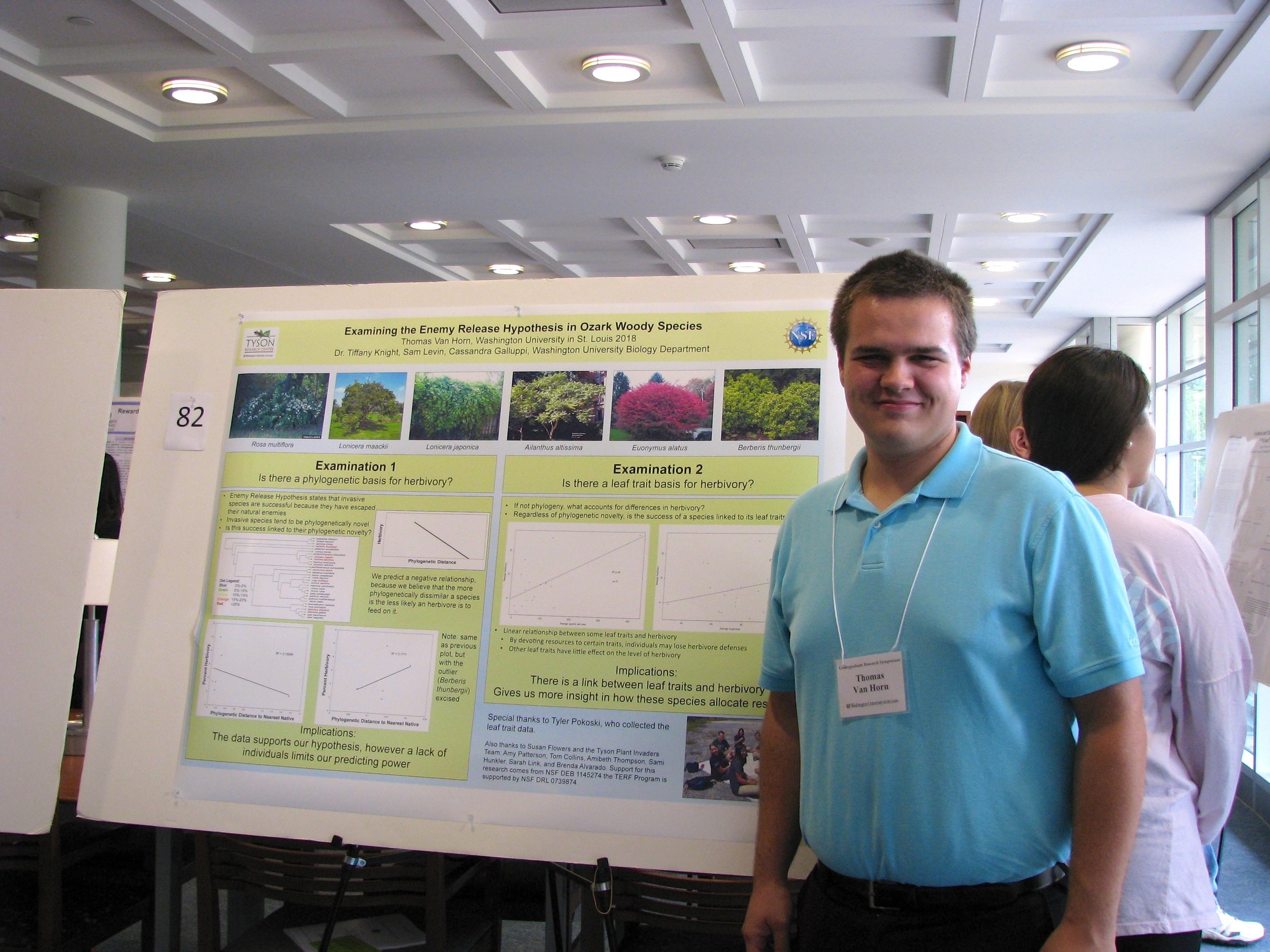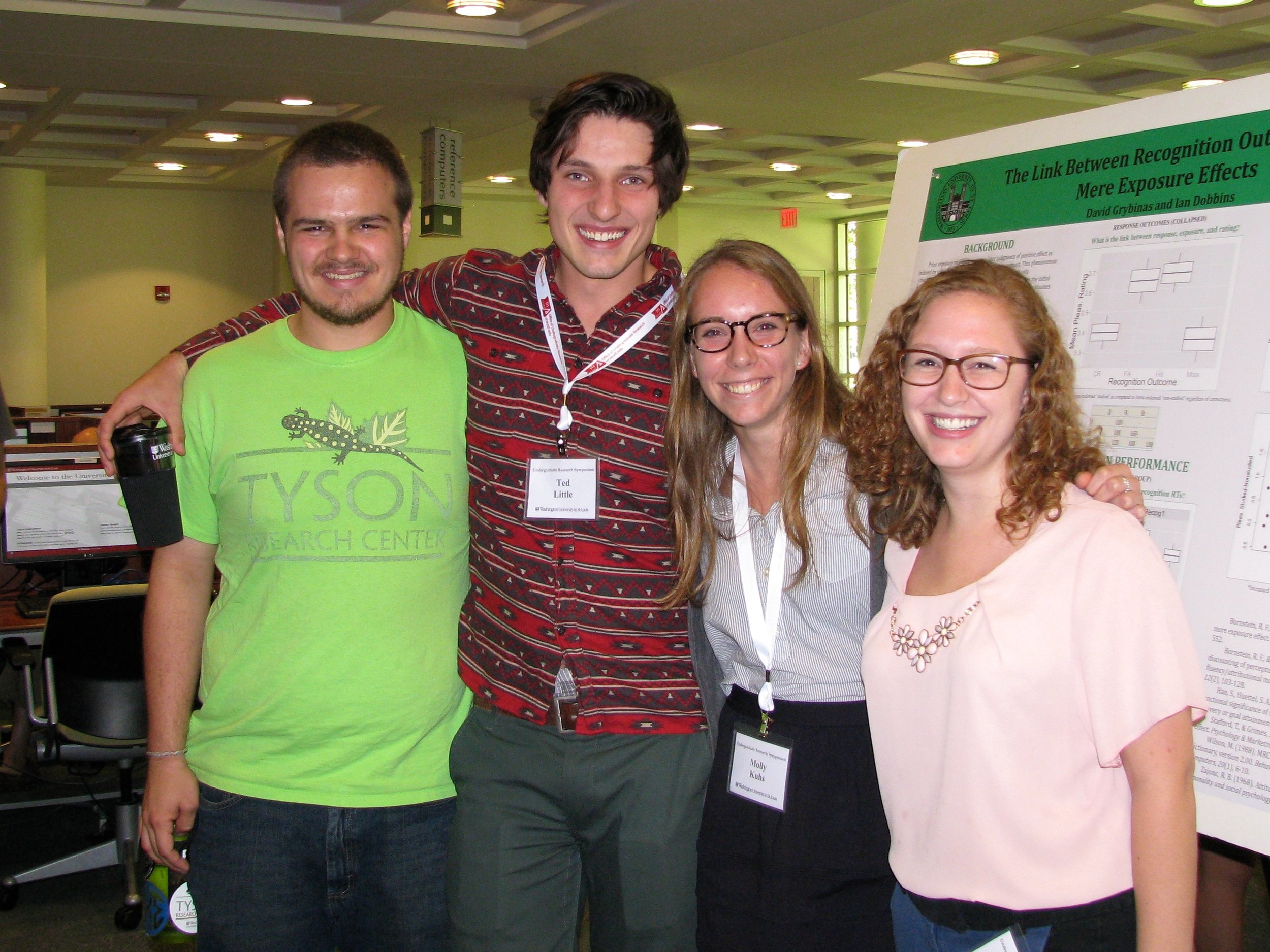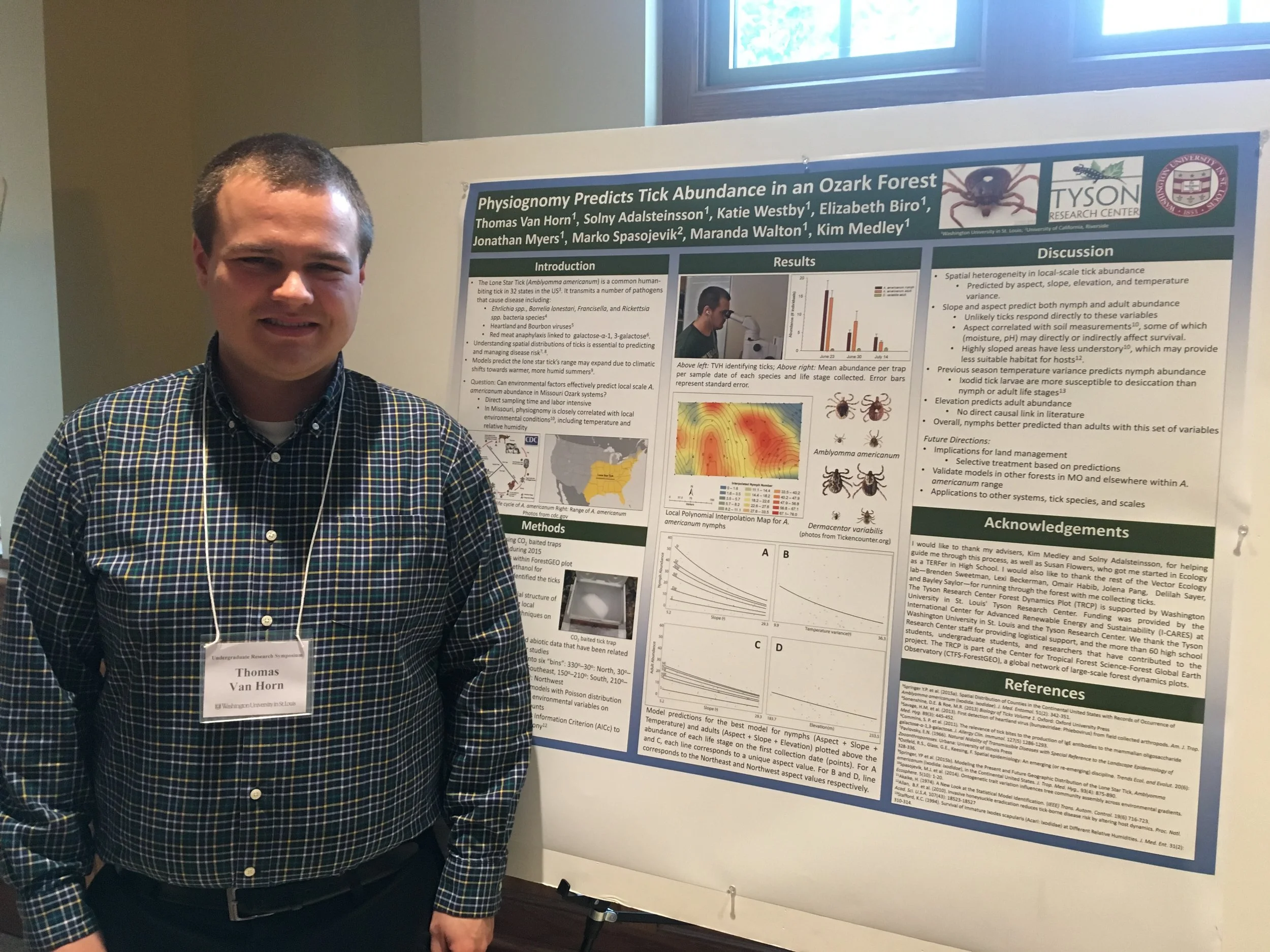May 16, 2018
Washington University senior Thomas Van Horn recently had his publication in the Journal of Medical Entomology featured in Entomology Today!
Thomas will graduate on May 18 with a degree in chemistry and will begin training to become a physician at the Washington University School of Medicine in fall 2018. A member of the Tyson Research Center community since 2012, he participated in all of Tyson's field research training programs.
Thomas spent three summers at Tyson while in high school as part of the SIFT (Shaw Institute for Field Training) and TERF (Tyson Environmental Research Fellowship) programs. While an undergraduate student at WashU, Thomas spent two summers as a Tyson Undergraduate Fellow. He began an independent research project in 2015 studying environmental factors that influence the abundance and distribution of lone star ticks within the ForestGEO plot at Tyson. Following the hard work of collecting ticks in the field and identifying them in the lab, Thomas learned about statistics and data analysis using program R. He took research credits during the 2016-2017 academic year, and used that time to analyze data and write up his results as a manuscript for publication.
The Tyson community is proud of Thomas' hard work and success! We recently caught up with him and asked a few questions about his experiences here over the years.
TYSON: How has the Tyson experience influenced your undergraduate career and future career plans?
THOMAS: Tyson gave me first-hand experience really early on in what it really takes to perform scientific research. Not many high schoolers get to spend time on research teams, and even fewer get to present their own project. By the end of my first year in college I was designing and leading my own project, which I got to take all the way to publication. There's a lot of behind the scenes work you never realize exists until you do it, and I loved figuring out experimental designs to answer questions. Even though I don't plan on continuing ecology research in med school, I've learned a lot about population dynamics and scientific communication that will be super helpful in the long-run.
TYSON: What did you learn through the experience of conducting research?
THOMAS: That it's not as straightforward as it seems! When we write papers we try to make it seem like everything logically flows from one thing to the next, that we always knew the right methods to use, that we had a clear idea of where the project was going at the start. But that's not really the case. Real research creates more questions than it answers, and sometimes you have to double back on those questions to make something like a full story. And real research doesn't often have clearly defined procedures. Even if you can find similar methods in another paper or project, at some point you're making it up as you go, and I really love that. Also, writing scientific papers takes a lot longer than you'd expect.
TYSON: Are there lessons from ecology or from conducting environmental research that you expect to bring to your career as a physician?
THOMAS: Ecology likes to ask large-scale questions, and in my project I've learned a lot about population dynamics and how seemingly inconsequential factors can make a large impact on a species or system. It's also cool to see how complex landscape-scale problems can be broken down into smaller manipulable ones to do experiments on. I don't know if I will end up doing public health type research in medical school or beyond, but I know I will continue to be interested by population-level determinants of health.
On top of this, I've gotten so much practice in scientific communication. Some undergraduate classes have this as a component, but most do not require you to read journals or write up your own results. The Thursday colloquia and seminars were my first introduction to how results are communicated in the scientific world, and understanding this style has been essential for learning about different avenues of research and critically examining results that do emerge. All too often media, even scientific media, overplays the significance of results or misinterprets data, so it is vital that we develop these critical thinking skills early on.
TYSON: What advice would you give to students considering joining the SIFT/TERF/Undergrad programs?
THOMAS: Do it! It seems like a lot of time out of your summer but it really isn't. If you're interested in any kind of science there is no better way to get research experience than SIFT/TERF. Students at all levels get to create projects and present them at poster sessions, which is super impressive on a resume coming into college and very helpful for your career if you decide to go into any STEM field. You'll gain invaluable skills, meet incredible people, and really feel like you're making a difference and increasing the knowledge of the world.
TYSON: Anything else you’d like to mention?
THOMAS: Working at Tyson was one of the highlights of my undergraduate career. Everyone is amazingly smart and caring, and there's a real culture of intellectual curiosity and collaboration. You will be well supported in whatever you do at Tyson, you'll get to develop your own research agenda (something that most labs won't let you do until you've been there a semester or a year!), and you'll get to see if scientific research is something you'd like to do as a career.



